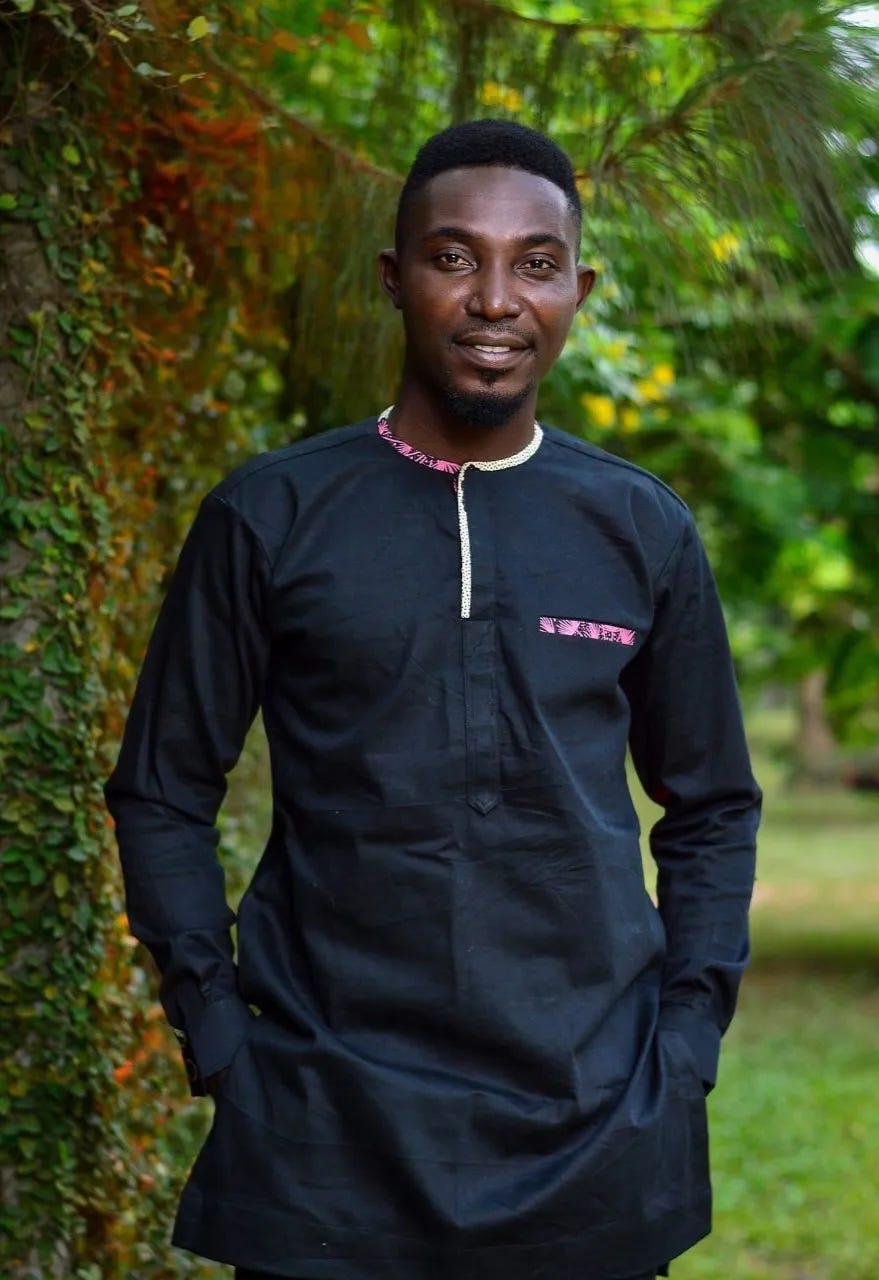Systemic Racism: A Barrier Or A Persistent Excuse?
A major theme of the socio-political and cultural discourse in the West today is the accusation of systemic racism and discrimination against Black people. From North America to Europe, the existence of racial disparities across different spheres is seen as evidence of such discrimination. Whether it's in terms of income, wealth, health outcomes, academic achievements, or representation in positions of power, Black individuals, on average, appear to fare worse than individuals from other "racial" groups. For example, in 2021, the median household income for Blacks in America was $45,000, compared to $71,000 for Whites and $101,000 for Asians. In 2018, the College graduation rate for Black students was 40% compared to 64% and 74% for White and Asian Students respectively. Given this reality, the popular narrative is that racism and discrimination are responsible for these disparate outcomes.
There is no doubt that racism and discrimination have underpinned the history of Western civilization. In the British colonies that later became the United States of America for example, Africans were enslaved for centuries followed by decades of legal discrimination against their descendants which only ended as late as the 1960’s with the passing of the Civil Rights Act of 1964. Many Black families may not have had the opportunity to build the skills and accumulate the necessary wealth and influence, putting them at a significant disadvantage. It follows therefore, that past discrimination can be one of the reasons for the disparities observed today. However, things have gotten objectively better for Black people; tremendous opportunities have opened, and the barriers have largely been eliminated.
The West has proven that for most people, with a modicum of ability and determination, one could become successful in any chosen endeavour and that Black people are not at any significant disadvantage because of their “race”. Many Africans, sensing this opportunity, have emigrated to the West in search of better opportunities, and they often find them. But there are some Black people—far too many in my estimation—who believe that racism and discrimination continue to shape social, economic, and political outcomes significantly and negatively for Black people today.
For such Black people, every disparity, misfortune, inconvenience, or negative interaction involving a Black person is blamed on racism and discrimination. As a result, many are stuck in the mental state of “I will never succeed because the system is rigged against me.” This disempowering message has become a self-fulfilling prophecy for many Blacks. Shelby Steele once said,
“It appears Black people do not know what to do with the freedom they now have.”
What is more sobering is that the media rabidly promotes such narratives. In recent times, articles that seem like parodies have been written with all journalistic seriousness, bearing such ridiculous and colourful headings as “The racial inequality of sleep” by Brian Resnick, featured in The Atlantic with the rider,
“Black Americans aren’t sleeping as well as Whites. Here’s why that’s a public health problem and what can be done to fix it.”
Black politicians are not left out of pushing this toxic narrative. The Vice President of the United States, Kamala Harris, once tweeted, "Black women deserve to have a joyful experience with their pregnancy." Here I am scratching my head as to what she means by that. Are Black women having miserable pregnancies while White women have joyful pregnancies? Whose job is it to ensure that Black women have "Joyful pregnancies?" So many burning questions, and of course, no coherent answers.
US House of Representatives member Ilhan Omar, quote tweeted an article stating,
“In MN, indigenous students are 10 times more likely to be expelled than their White peers. Black students are 8 times more likely to face disciplinary actions, students with disabilities also face more disciplinary action. Glad MN is taking action. We need to pass the END PUSHOUT Act to address these disparities nationally.”
Her issue is not that school suspensions are often unproductive, but rather that there are disparities in school suspensions by race.
A question for Ilhan Omar; are the White students acting in a manner that requires disciplinary action at the same rate as Black and indigenous students? Heck, are the Asian students acting in a way that requires disciplinary action as much as the Black students? I think it’s ridiculous to keep those records by race, but if it’s done, it’s literally impossible for the rates of offence and punishment to be the same for any two groups, even if those groups were selected by other criteria aside from race. It is this sort of equity delusion that throws a wrench in the credibility of progressives. They keep asking for the impossible.
Ilhan Omar, not quite done, tweeted,
“We spend too much time policing the language of Black and Brown women who speak out against oppression and not enough time ending the oppression of Black and Brown people.”
The idea that Black people are oppressed today is a lie. There are no laws that specifically target Black people, and of course you would find people with racist attitudes here and there, but they do not have the power to oppress any Black person. Racism is such a social taboo that if a White person chooses to be openly racist, it likely means they don't care about their jobs, careers, or social relationships. If there is even a whiff that a White person displayed racist attitudes, they become such a social pariah that no company would touch them with a ten-foot pole. Some have lost their jobs and others have been forced to tender humiliating public apologies for accusations of being racist.
Recently, the end of race-based affirmative action has caused a lot of uproar, with some claiming that it would lead to no Black people being admitted to elite universities like Harvard. In my opinion, I think the impact of race in these admissions was not that significant; however, it was a crutch. It opens a question mark above the heads of Black people in these elite universities who could have gotten in by merit without affirmative action, but courtesy of affirmative action, their abilities would always be called into question.
Right-wing commentator Charlie Kirk recently claimed that Black people like Barack Obama and Kamala Harris robbed White people of the political positions they held because of affirmative action. Now, this is obvious nonsense, at least in Obama’s case—Kamala Harris, I am not inclined to defend—but such accusations of the 44th US President not meritocratically earning his way only arise because of affirmative action.
In a recent interview on my podcast, Critical African Thinkers, Adam B. Coleman stated,
“Black people have the freedom to succeed and to fail. Freedom doesn’t always mean success, and if Black people need affirmative action to be successful, then they have failed. I won’t mind if Harvard is 60% Asian, if Black people want to be in these elite universities, then Black people need to work harder just like everyone else.”
About a year ago, while interviewing Bob Woodson in an episode entitled “What defines America, oppression or promise?” I asked him about the impact of past discrimination on African American socio-economic status today and why we should be more empathetic, and he said,
“Those who are behind need to run faster.”
Those words were very striking and have stuck with me ever since. Different groups of people, by virtue of an accident of history, are faced with disproportionate challenges. What they need is not a crutch to lean on; what they need is to be innovative and resourceful to look for ways to mitigate those challenges.
Different groups of people, by virtue of an accident of history, are faced with disproportionate challenges. The idea that racism and discrimination hold Black people back today discounts the incredible ability of humans to adapt and overcome challenges. This might seem cliché, but Jewish success despite never-ending discrimination throughout their history is a testament to the resilience of the human spirit.
Many groups that have faced daunting challenges in their history have been able to rise above those challenges, but for some reason, Black people are not expected to do the same? The excuse of racism and discrimination, as stale as it now is, continues to be a hindrance that must be discarded if Black people are to make progress in the 21st Century.
Accusations of racism and discrimination continue to serve as a pretext, obstructing Black individuals from embracing the opportunities within reach. It’s an excuse that prevents many Black people from being self-critical enough to realise that, for the most part, their destiny lies in their hands. And though there are exceptions, White people have no more opportunity to succeed today than Black people. Black people need to focus on what is within their control and not outsource their agency to the government.
As much as I push back when certain people throw out the “you’re playing the victim” accusation even in situations when it is not warranted, such accusations did not just fall from the sky. There have been patterns of behaviour from some Blacks—not least from many prominent Black people—that seem to justify the stereotype that Black people are always playing the victim. The case of Jussie Smollett, who faked a hate crime against himself, is a prime example. A prime example of someone who had things going well for him but thought he could further his career by deploying a crutch.
Racism is a scourge that no doubt still exists in society, but it has lost most of its potency. My African American friend Stanley puts it succinctly when he says, "Racism today is more like speed bumps; you can always find a way around it.”
Conclusively, the late Kevin Samuels once said,
“We (African Americans) know the history of this country (USA), there is not a place in this country where we don’t belong. So, I walk in everywhere like I belong. If I have the credentials, if I have what everybody else has, I’ll have what everybody else has. And that’s what I want, for you to start looking at yourself like you belong…..Everything out here has somebody coming from another country to come get their piece of it, you were born here. There is no place here you can’t go, so what’s stopping you?”
Charles Ekokotu (Pharm. D.) is a bibliophile, prose fiction writer, poet, and playwright. His first self-published novel, Hotel Shendam—a crime fiction novel featuring a debate on race and colonialism—is available on Amazon. He hosts a show on YouTube called, Critical African Thinkers which covers interesting interviews and commentary on race, politics, religion, social issues etc. He also writes on Substack.







